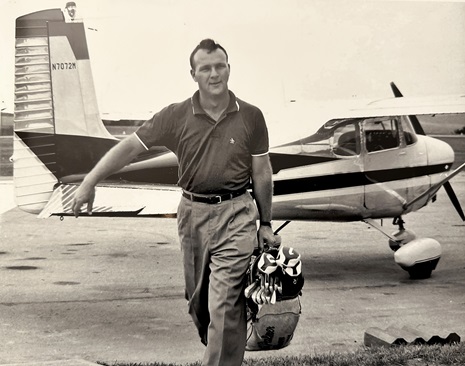
Warren Silberman
- Former Manager, FAA Aerospace Medical Certification
- Doctor of Osteopathic Medicine
- Expert in Aerospace/Preventive Medicine
- Pilot since 1986
What do you have to do in order to gain a special issuance for this condition? The FAA accepts all the current medications, but it may not accept certain combinations of these medications. For the details of the acceptable medications and the FAA guidelines, visit the AOPA Medical Certification website.
The FAA will allow all classes of medical certification for those airmen treated with oral medications. In general you must be on the medication for at least 60 days prior to presenting your case to the FAA. At that time the FAA wants you to provide them with a current status report that mentions what medication(s) you are taking and whether you have had any side-effects. Then they want your treating physician to make a statement as to whether you have had any hypoglycemia (low blood sugar) episodes. There are several oral agents that do not have hypoglycemia as a side effect but they nevertheless want it mentioned in the note. They also want to know if you have any other body system effects of the diabetes such as heart, vascular, kidney, neurologic, etc. In medical terms, it is written by your treating physician as “cardiovascular, renal, peripheral vascular.” If you do, then you physician should mention what they are. You also need to provide a current blood test called a hemoglobin A1C level. Hemoglobin is what makes up your red blood cells, and glucose attaches itself to hemoglobin. A hemoglobin A1C level tells your physician what your glucose level was over a prolonged period of time (usually the past 90 days). The FAA does not want an airman to have low blood sugar levels as that can affect one's mental alertness and even result in someone passing out! The highest level they will allow is 8.9 mg% (6.0 is generally the high range of normal in most laboratories).
The FAA only allows third-class or private pilot airmen to gain special issuance with this condition. These airmen also have a restriction placed on their medical certificate that they may not fly outside the confines of the United States. The granting of medical certification for this condition is quite controversial outside the United States. The main concern with these individuals is that without proper control they can develop hypoglycemia or what lay folks call an “insulin reaction.” If one develops this and it is unrecognized by the airman they can become confused and pass out. If they were flying when this occurred it could be catastrophic!
There are currently about 480 third-class airmen with this condition who have a special issuance medical and are flying. The requirements to obtain medical certification are quite involved. AOPA’s online medical center explains the requirements. The FAA will accept most oral medications when used in conjunction with insulin. Once again, check the AOPA website for those unacceptable combinations.
Once an airman is granted medical certification they will be required to monitor their blood glucose values by means of a recording glucometer (you all have seen these devices mentioned on TV ads). They must take their finger stick reading prior to flight, every hour while in flight, and 30 minutes prior to landing. They are required to have sugar tablets with them in case their sugars are too low and are asked to land immediately if their finger stick is 300 or above. These airmen must also see their treating physicians at least every quarter and obtain a hemoglobin A1C level (see my earlier newsletter on diabetics treated with oral medications).
For more information on the AOPA Pilot Protection Services program, visit www.aopa.org/pps.
To continue reading, please log in or join AOPA now to have access to these exclusive expert resources.
Diet-controlled diabetes mellitus is one of the five medical conditions that your aviation medical examiner may grant issuance if you come to your examination with the proper documentation.
As of Dec. 31, 2010, the FAA had granted medical certification to 952 first-class, 1,334 second-class, and 4,464 third-class airmen with diabetes mellitus on oral medications. This is a common medical problem that the FAA deals with. Diabetes mellitus treated with oral medications or insulin is one of the FAA's specifically disqualifying medical conditions. This means that if you have one of these problems, your AME may not issue you a medical certificate without going through requesting a special issuance from the FAA.



